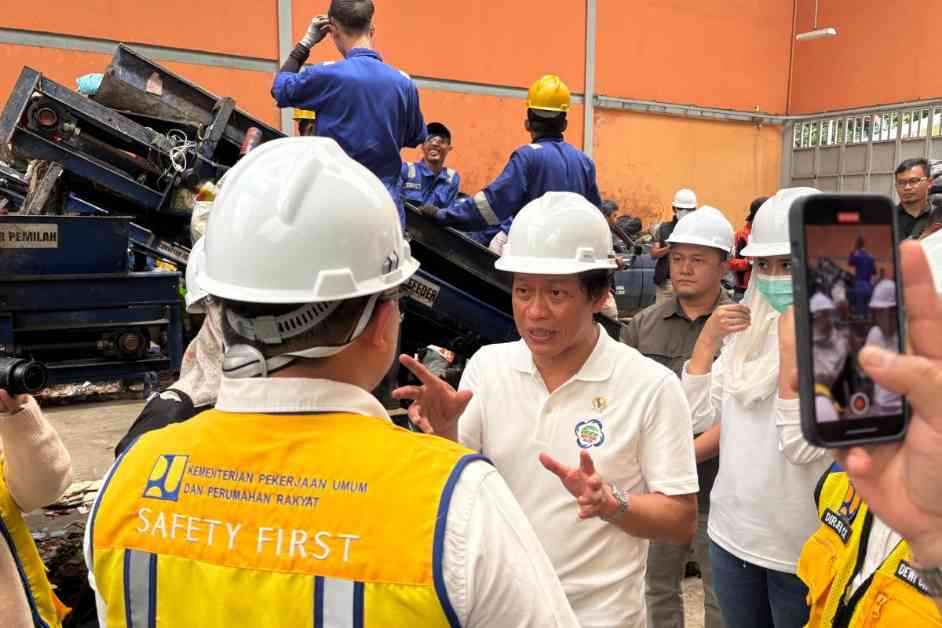Environment Minister Hanif Faisol Nurofiq has been actively seeking funding partnerships for the enhancement of waste management technology in Indonesia. The Minister revealed that discussions have been ongoing with various entities to explore potential collaborations in this area.
During a recent visit to an integrated waste management site in Cimahi, West Java, Minister Nurofiq disclosed that talks have taken place with representatives from countries such as South Korea, Japan, Denmark, and Norway. These discussions aim to secure financial support for the procurement of advanced waste management technology.
Furthermore, the Ministry of Environment has engaged in dialogues with the United Nations Environment Programme (UNEP) regarding financial assistance for waste management initiatives within Indonesia. One of the proposed strategies involves leveraging the carbon economic value mechanism.
“We are considering a joint crediting mechanism, where payments are made through carbon credits. While we are actively pursuing this avenue, it is essential to recognize that the issue of waste management cannot be resolved overnight,” Minister Nurofiq emphasized.
The Minister underscored the critical role of technology in waste management, emphasizing the importance of complementing technological solutions with upstream waste reduction efforts, particularly at the household level through waste sorting practices. Additionally, he highlighted the significance of off-takers who play a vital role in purchasing end-products of waste management technology, such as refuse-derived fuel (RDF) derived from plastic waste.
Data from the National Waste Management Information System (SIPSN) of the Ministry of Environment indicates that the total volume of waste generated across 278 districts and cities in Indonesia reached 29.3 million tons in 2024. This substantial figure underscores the urgent need for comprehensive waste management strategies and technological upgrades to address the growing waste crisis in the country.
Challenges and Opportunities in Waste Management
As Indonesia grapples with the mounting challenges of waste management, there are significant opportunities for innovation and collaboration to drive sustainable solutions. The integration of advanced technologies, such as waste-to-energy conversion systems and recycling processes, can play a pivotal role in transforming the waste management landscape.
Expert insights from environmental scientists and waste management specialists underscore the importance of adopting a holistic approach that combines technology with community engagement and policy interventions. By fostering a culture of waste reduction, reuse, and recycling, Indonesia can move towards a more circular economy that minimizes environmental impact and maximizes resource efficiency.
Implications for Sustainable Development
The successful implementation of enhanced waste management practices not only benefits the environment but also contributes to broader sustainable development goals. By reducing waste pollution, conserving natural resources, and promoting clean energy generation, Indonesia can strengthen its position as a global leader in environmental stewardship.
Moreover, sustainable waste management initiatives have the potential to create new economic opportunities, enhance public health outcomes, and foster social inclusivity. By investing in the modernization of waste management infrastructure and fostering cross-sectoral partnerships, Indonesia can pave the way for a greener, cleaner, and more resilient future for generations to come.
In conclusion, the quest for funding to upgrade waste management technology in Indonesia represents a critical step towards addressing the complex challenges of waste pollution and environmental degradation. Through collaborative efforts, technological innovation, and strategic investments, Indonesia can pave the way for a more sustainable and prosperous future.






















